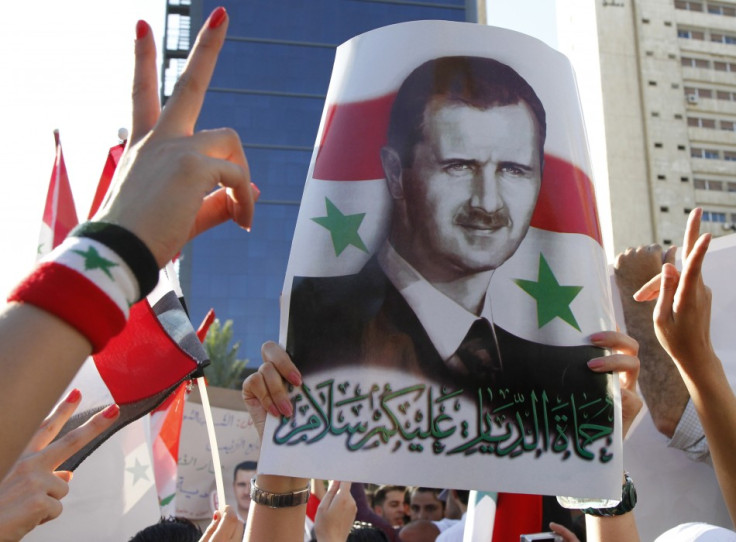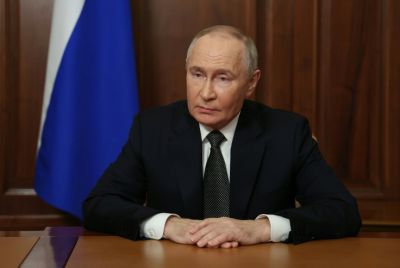The Syrian Crisis and the Delusions of President Assad

The crisis that has gripped Syria for months is being widely reported, but with no foreign journalists or rights groups allowed in the country, President Bashar al-Assad has continually denied that his regime is waging a brutal crackdown.
Despite calls from Syrian protesters and the international community to step down, Assad has brushed aside criticisms, saying the uprising has been created with the support of "foreign powers."
While Syria might have officially accepted an Arab League peace plan in which it agreed to withdraw armoured vehicles from the streets, stop violence against protesters, release all political prisoners and begin a dialogue with the opposition within weeks, a 26-page report it submitted to the U.N. Human Rights Council in October did not acknowledge any forms of repression.
The document presents the image of a government open to reforms, women's rights and freedom of expression, and a state under attack by "terrorists" and a smear campaign.
"In recent months, the Syrian Arab Republic has been subjected to a series of criminal attacks against the nation and the people by armed terrorist groups. ... The groups involved have committed offences against the Syrian people, and acts of theft, murder and vandalism. They have also exploited peaceful demonstrations in order to create anarchy, strike a blow at national unity and destroy the social fabric of the nation. ...
"These terrorist acts have been accompanied by a concerted misinformation campaign that has been waged by Arab and international media. The campaign began with the fabrication of stories about events in the Syrian Arab Republic with advanced visual and communications technology being used to show fake footage, allegedly of events unfolding in the Syrian Arab Republic," the report asserted.
More follows on the regime's efforts to remain transparent and to uphold human rights.
"With this report, the Syrian Arab Republic hopes to provide a comprehensive overview of the human rights situation in the country and a clear picture of tangible gains scored, of difficulties encountered and of future goals and aspirations."
The regime also highlights the rights enumerated and protected by the constitution.
"Liberty is a sacred right that is safeguarded by the Constitution and the law.
"Articles 424-425 of the code of criminal procedures states that no person may be detained without being charged in accordance with the procedures laid down by the law.
"The right to peaceful assembly is afforded under the Syrian Constitution ... in accordance with recognised international standards and the practice followed in most countries. The decree states that the right to peaceful protest is afforded to citizens as a fundamental human right."
The reports also talks about human rights violations, mentioning only "nine Syrians Arabs of the occupied Golan" currently detained in Israeli prisons.
"These people were incarcerated in Israeli prisons on trumped up charges and, along with their fellow Arabs in Israeli prisons in the occupied territories, live in harsh conditions that have been condemned by international human rights organisations. They are subjected to the worst forms of physical and psychological torture, consisting in their use in scientific experiments and are held in prisons that are far from their homes."
Following the report, it is hard to take Assad's promise to the Arab League seriously. The regime portrays itself as a victim of "terrorism" and keeps in line with what Amal Saad-Ghorayeb calls the "jabhit al mumana'a" or resistance axis, formed by Iran, Syria, Hezbollah and Hamas to oppose the U.S and Israel, by highlighting human rights violations which it says are committed by Israel.
The report shows that far from acknowledging the brutal crackdown on civilians, the Syrian state is likely to deny it is persecuting protesters and instead continue to insist that countries like the U.S. and Israel are only seeking its demise to put a regime in place friendlier to their interests.
© Copyright IBTimes 2025. All rights reserved.





















